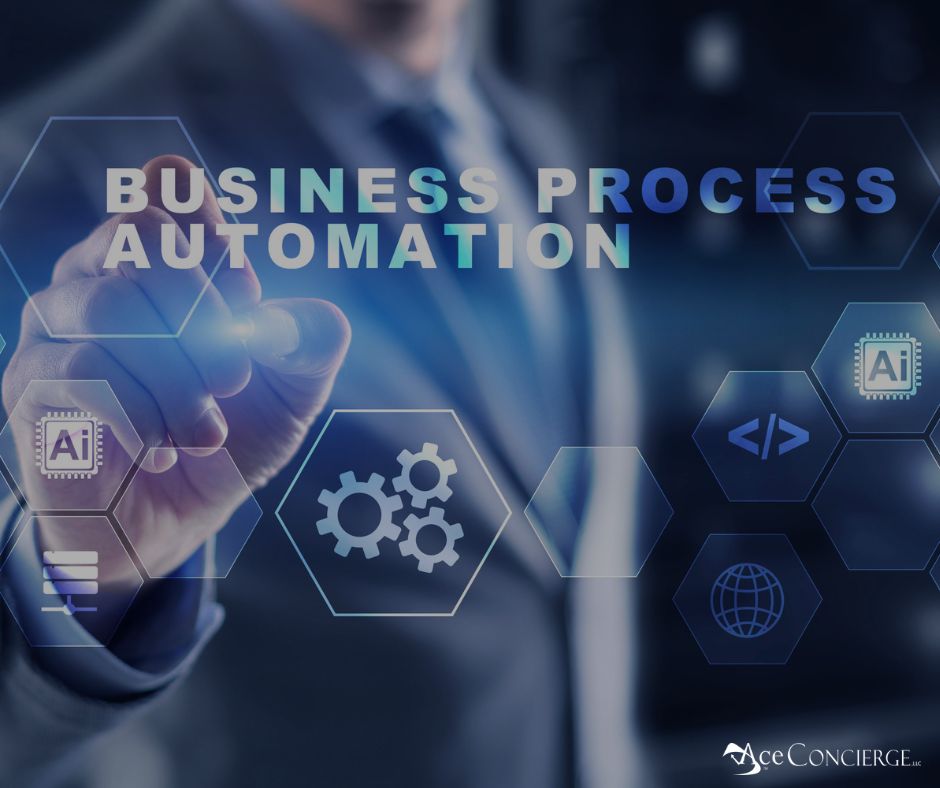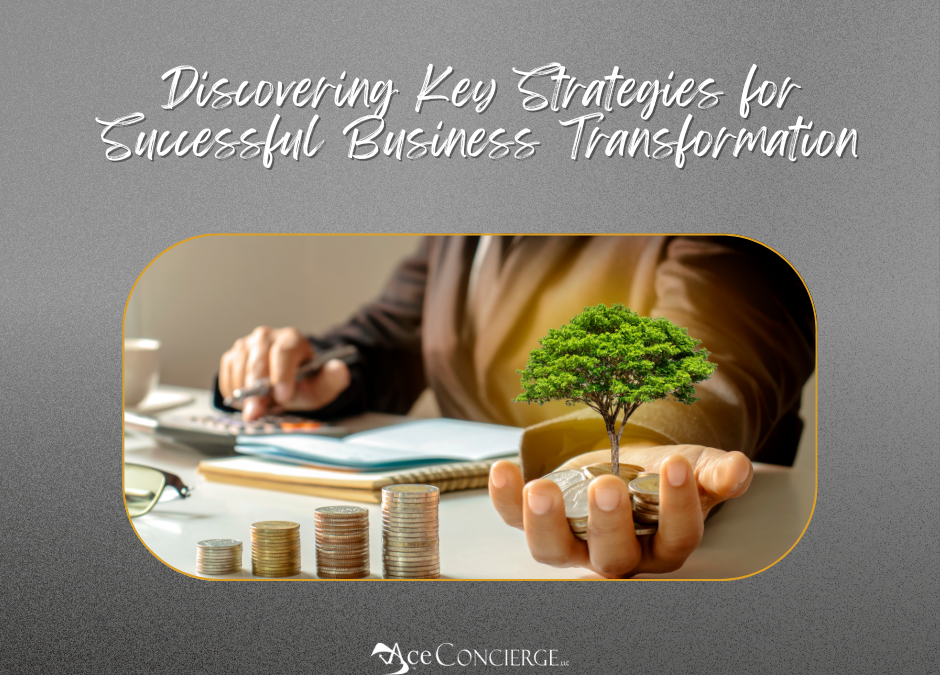
by Ace Concierge | Virtual Assistant | Apr 3, 2024 | Business Transformation, Leadership
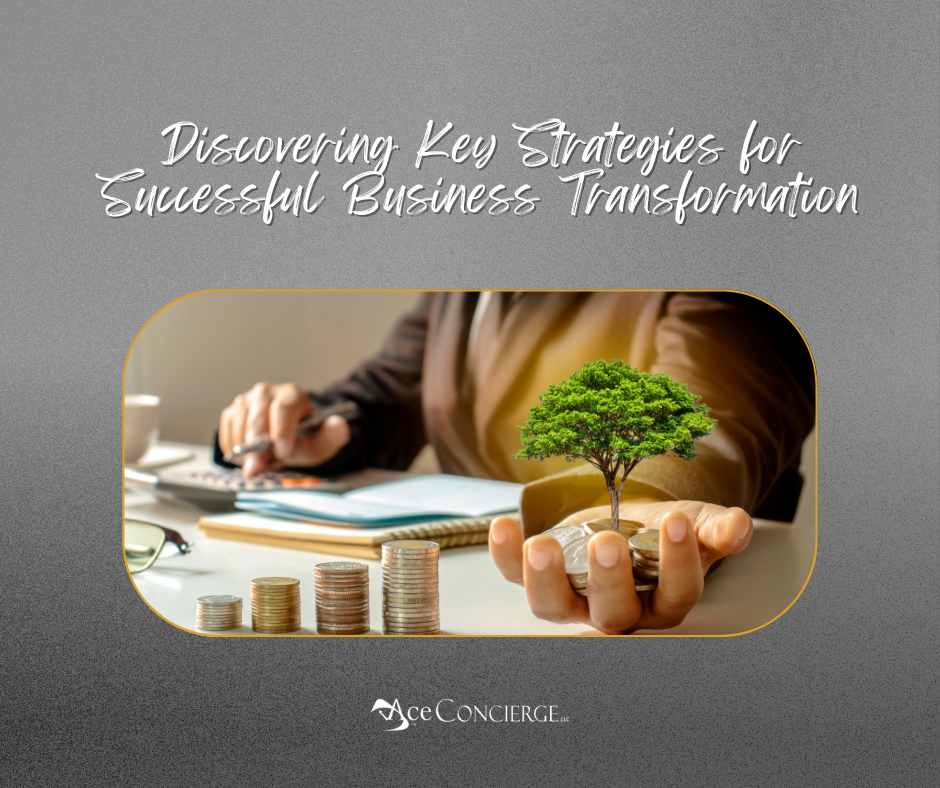
In the wild business world, there’s a golden rule: “If you keep spinning in circles, don’t expect to land on Jupiter!”
Whether starting a new venture or jazzing up an old one, the significance of building or transforming a business from the ground up cannot be overstated. This process is akin to laying a strong, sturdy, and functional foundation essential for long-term success and sustainability.
It all begins with a vision, a spark that ignites the flame of innovation. Embrace the thrill of transformation as you breathe new life into your business. Every tweak, every adjustment, every bold leap forward is a step towards greatness.
“If you are not ready to change yourself, forget about changing your team and your organization.” Dr. Patrick Liew, executive chairman at GEX Ventures.
Embracing Change for Growth
Starting or transforming a business means being open to change and shaking things up. It’s all about embracing innovation, adapting, and always getting better. It’s time to break out of your comfort zone!
The Humbling Experience of Starting Anew
This journey can be a truly humbling experience. It requires us to let go of any preconceived notions, unproductive practices, or outdated strategies, but it is absolutely necessary to mend any cracks that may have developed over time. By rebuilding a business from scratch, we can eliminate weaknesses and establish a more solid framework for future growth.
Avoiding Band-Aid Solutions
Trying to solve business challenges with quick fixes is like putting a band-aid on a severe wound. Fundamental transformation needs a thorough strategy that tackles root problems and brings lasting change. Business owners can break free from ineffective cycles by avoiding hasty solutions, concentrating on fundamental enhancements, and creating a sustainable path to success.
Getting to the Root Cause
When it comes to business transformation, applying root cause analysis emphasizes the similarity between personal growth and corporate development. Just as individuals focus on improving their core habits for overall well-being, businesses must identify and resolve foundational challenges to unlock their full potential. Ignoring and failing to correct harmful practices or mindsets can undermine positive initiatives.
The Power of Strong Foundations
A well-established organization is better able to navigate problems and capitalize on opportunities. A solid infrastructure, including efficient operating procedures, strong leadership, and a clear strategic direction, provides the foundation for long-term success.
Embracing Innovation and Adaptation
Innovation and adaptability are essential for success and present a chance to incorporate these traits into the organization’s DNA. Businesses may stay ahead of industry trends and consumer preferences by fostering a culture that celebrates creativity, welcomes change, and always strives for the better.
Transformation can be exciting, but it’s easy to hit some speed bumps along the way. One of the biggest mistakes I see companies make is rushing the process, trying to get results fast without taking the time to get the fundamentals right – things like clearly defining roles, goals, and expectations. This can lead to confusion and disengagement among employees, a recipe for a bumpy transformation journey.
Transformation Pitfalls:
- Rushing the Process: There is a tendency to want quick results, but going too fast can lead to overlooking essential parts of the transformation process, resulting in more expense and delays down the line.
- Lack of Clear Roles, Goals, and Expectations: Failing to articulate clear roles, goals, and expectations can lead to misunderstandings and a lack of engagement among employees.
- Inadequate Change Management: Failing to communicate the need for change, lacking a clear vision of the future, and not equipping employees to adapt are common mistakes that impede the transformation process.
- Ignoring Data and Technology Intersections: Neglecting the interplay between data, technology, and processes can lead to inefficiencies and uninformed decision-making.
- Underestimating Culture Change: Introducing digital transformation without adequately addressing cultural shifts and failing to engage employees in the process can impede the success of the transformation.
- Not Prioritizing Business Benefits: Failing to identify and quantify business benefits or not correctly defining the business motivation and vision can lead to a lack of direction and unsuccessful outcomes.
- Trying to Do It All Alone: Many small business owners make the mistake of doing everything themselves, leading to oversights and inefficiencies. Seeking outside expertise and support can be beneficial.
“By understanding and managing a small number of common root causes and how these forces interact dynamically, you can prevent trouble in the first place or move effectively to rescue the project once trouble strikes.” PricewaterhouseCoopers
In closing, whether you’re starting a new business or breathing new life into an existing one, the significance of building or transforming from the ground up cannot be underestimated. By adopting the right mindset and implementing strategic approaches, you can skillfully navigate the landscape of transformation and unlock your business’s full potential.

by Ace Concierge | Virtual Assistant | Mar 27, 2024 | Business Transformation, Delegation
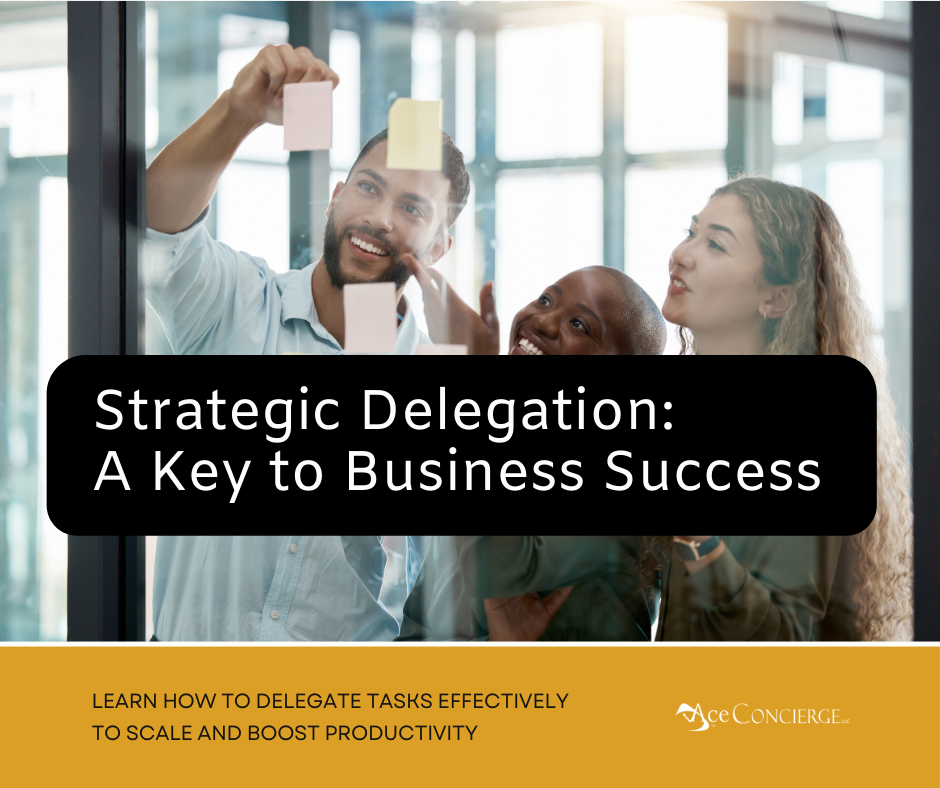
Greetings fellow entrepreneurs,
I’m here to share my transformative journey – a shift from being a one-person powerhouse to embracing strategic delegation. It’s a story of efficiency, sanity, and achieving sustainable success in business.
The DIY Dilemma: A Prelude to Change
Many years ago, I found myself burning the midnight oil, surrounded by stacks of tasks, and constantly feeling the weight of running every aspect of my business single-handedly. I took pride in being a one-person army, juggling tasks from marketing to admin. The belief that doing it all would equate to more success was my guiding principle. Little did I know, I was unknowingly boarding the express train to Burnout City.
Pain Point 1: The Myth of Multitasking
In the quiet hours of the night, accompanied by never-ending to-do lists, I attempted to wear every hat in my business. The seductive appeal of multitasking, the notion that managing everything equated to success, ensnared me in its intricate web. It didn’t take long for me to recognize that, amidst the juggling act, I was merely managing rather than genuinely excelling.
Pain Point 2: The Illusion of Control
While I once prided myself on absolute control, the growing workload prompted a shift in perspective. Embracing a growth mentality, I chose to let go to grow. This strategic decision is a decisive move toward scalability and long-term success.
Pain Point 3: The Toll on Well-being
Success at the expense of my well-being wasn’t success at all. The pressure of managing it all was taking a toll on both my physical and mental health. It was time to reassess my approach, reevaluate my priorities, and consider a more sustainable path.
The Turning Point: Recognizing the Need for Strategic Change
Amid this chaos, a realization hit me like a breath of fresh air. I came across a Richard Branson quote: “If you really want to grow as an entrepreneur, you’ve got to learn to delegate.” It was a lightbulb moment – a revelation that pointed towards a more strategic and sustainable way of managing my business.
Solution 1: Delegating for Sustainable Success
Enter strategic delegation – my newfound ally. I decided to bring an executive virtual assistant on board, not as a lifeline, but as a partner in my journey. Delegating tasks allowed me to reclaim valuable time and redirect my focus toward areas where my skills truly shined.
Solution 2: Precision Through Specialization
Delegating tasks didn’t mean relinquishing control; it meant gaining precision. I enhanced my business’s overall efficiency by bringing in individuals with expertise in specific areas. This strategic move elevated the quality of my business solutions and operations.
Solution 3: Balancing Act – Reducing Stress and Enhancing Well-being
The critical outcome of strategic delegation is a significant reduction in stress levels. Suddenly, the pressure lifted, and I had the time and mental space to focus on what truly mattered. My work-life balance was restored, and my business survived and thrived.
The Numbers Don’t Lie: Delegation’s Impact on Efficiency
Let’s look at some statistics. According to a Forbes article, CEOs who demonstrate exceptional delegation skills can achieve a remarkable 33% increase in revenue. In entrepreneurship, where time is the ultimate currency, strategic delegation emerges as the key to enhanced productivity.
Walking the Talk: Leading by Example
I’m not just singing the praises of delegation; I’m living it. My virtual assistant is not merely a support team member; she’s an integral part of my business’s success. I delegate to her, not as a means to cope but to ensure sustainable growth, provide exceptional customer experiences, reduce stress, and foster a healthier work-life balance.
The Final Verdict: A Strategic Shift for Sustainable Success
In a world that often glorifies the hustle, it’s crucial to recognize that sustainable success is the accurate marker of achievement. It’s not about doing it all; it’s about doing what matters most and well. Delegating isn’t a sign of disorganization; it’s a strategic move toward lasting success.
So, if you find yourself overwhelmed and yearning for a more sustainable approach, consider the power of strategic delegation. It works!!
Here’s to efficiency, balance, and the journey from DIY to a sustainable and successful business!
Cheers!!

by Ace Concierge | Virtual Assistant | Jan 10, 2024 | Business Transformation, Business Values, Work Life Balance
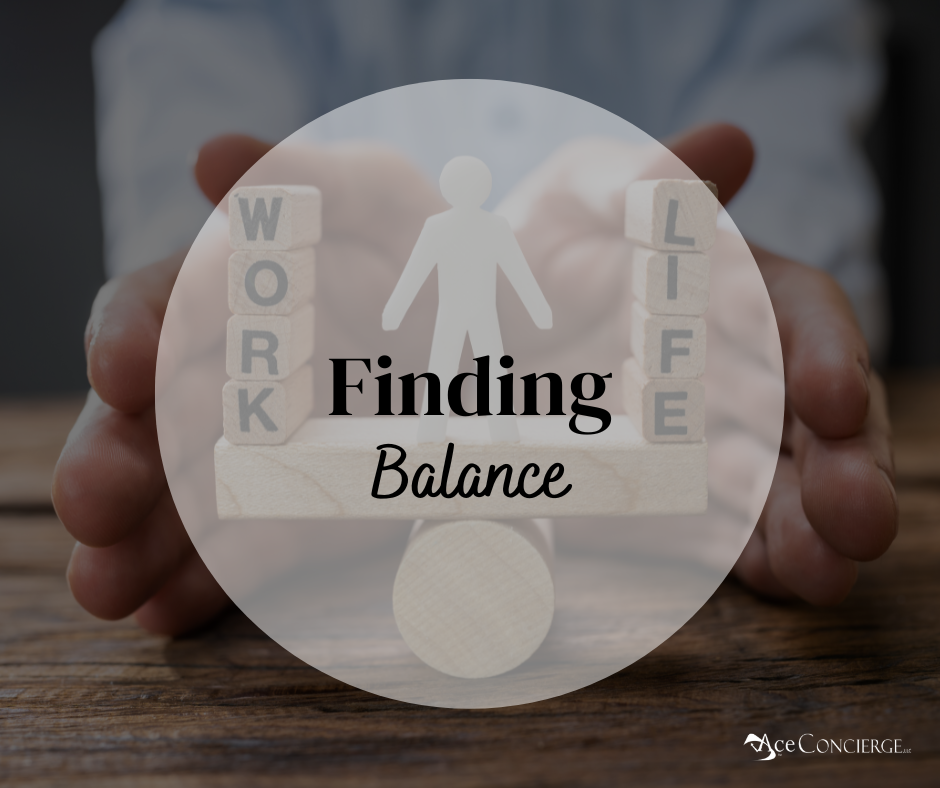
CEOs, often regarded as the superheroes of the business world, must keep their kryptonite in check to achieve work-life balance. The demands of the job have blurred the lines between work and personal life, leaving CEOs to feel like they are on call 24/7.
Despite the superhuman expectations, they are only human, and finding that sweet spot between work and personal life can be as tricky as navigating a minefield. The modern world’s constant barrage of emails, phone calls, and urgent matters can make it feel like the workday never ends, ultimately leading to burnout and stress, taking a toll on CEOs’ well-being.
The Work-Life Balance Myth:
The concept of work-life balance can often feel like an unattainable dream. The boundaries between work and home are blurred because of technology, leading to immense pressure for CEOs to be available round-the-clock. The instant accessibility makes it challenging for CEOs to disconnect from their work responsibilities.
The 24/7 Nature of Leadership:
CEOs are entrusted with the overall success and growth of their organizations. This responsibility comes with a 24/7 commitment, as crises can occur at any time, and critical decisions may need to be taken outside regular working hours. The demanding nature of the role often leaves CEOs with limited opportunities to switch off and enjoy personal time, impacting their overall well-being.
Strategic Planning vs. Personal Time:
CEOs must develop and implement long-term strategies to ensure the sustainability and success of their companies. This requires significant time and dedication, often cutting into personal or family time. Balancing the need for strategic planning with personal commitments becomes a delicate dance that many CEOs find challenging to master.
Family and Social Sacrifices:
One of the most significant sacrifices CEOs make in their pursuit of professional success is often felt in their personal lives. Long working hours, frequent travel, and the constant pressure to perform at a high level can strain relationships with family and friends. Important life events may be missed, and the emotional toll of such sacrifices can lead to feelings of isolation and loneliness.
The Weight of Decision-Making:
CEOs are faced with a multitude of decisions daily, each carrying its own set of consequences. The weight of these decisions can be emotionally draining, impacting the mental well-being of CEOs. The constant need to make tough choices and navigate through uncertainties takes a toll, making it crucial for CEOs to find effective ways to recharge and decompress.
The Role of Self-Care:
CEOs must recognize the paramount importance of self-care in their pursuit of work-life balance. While the demands of the role undeniably intensify, neglecting personal well-being can have severe repercussions. Engaging in regular exercise, ensuring adequate sleep, and practicing moments of mindfulness provide CEOs with the necessary resilience to navigate daily challenges.
Implementing Boundaries:
Establishing clear boundaries between work and personal life is essential for CEOs. Setting specific timeframes for work-related activities and creating dedicated periods for personal commitments help to maintain a healthier balance. Communicating these boundaries to colleagues, subordinates, and even family members is crucial for ensuring everyone is on the same page and respects the CEO’s need for personal time.
Delegating and Empowering:
CEOs often believe they must handle everything themselves. Delegating tasks and empowering capable team members is not a sign of weakness but a strategic move to ensure the sustainable growth of the organization and the well-being of the CEO. Trusting the team to handle certain responsibilities allows the CEO to focus on high-impact tasks and find pockets of time for personal pursuits.
Juggling work and life can feel like a circus act for CEOs. While there’s no magic formula, prioritizing self-care, implementing effective time management strategies, and finding that personal sweet spot can lead to a healthier and more fulfilling CEO journey.
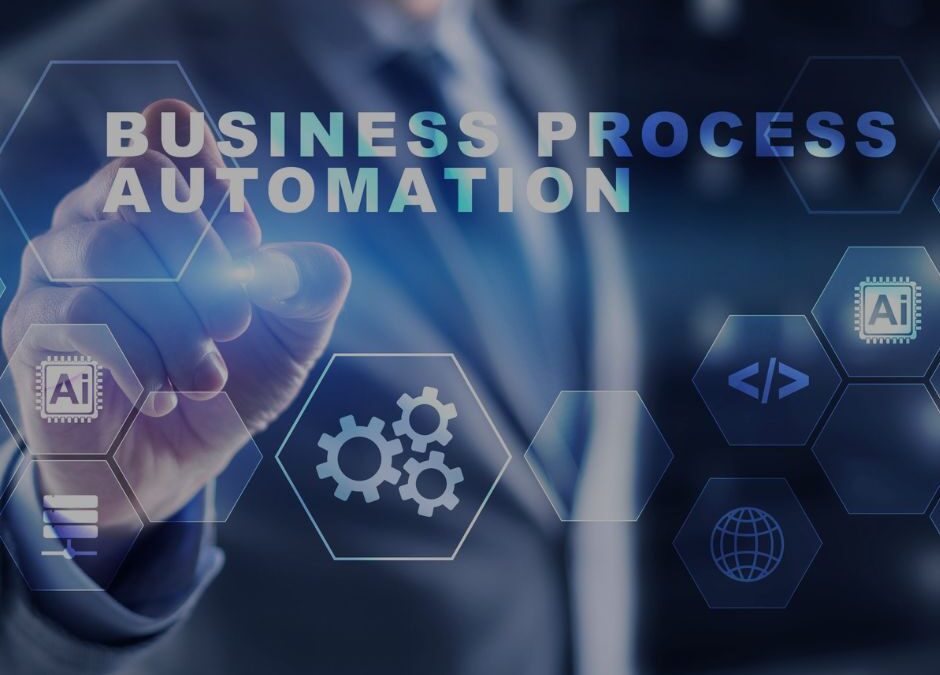
by Ace Concierge | Virtual Assistant | Feb 15, 2023 | Business Transformation, Executive Assistant, Productivity, Technology, Virtual Assistant








